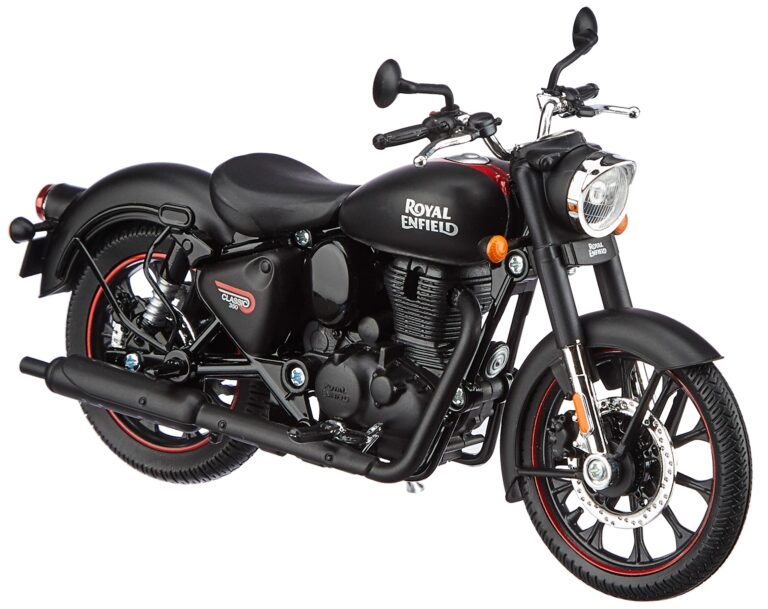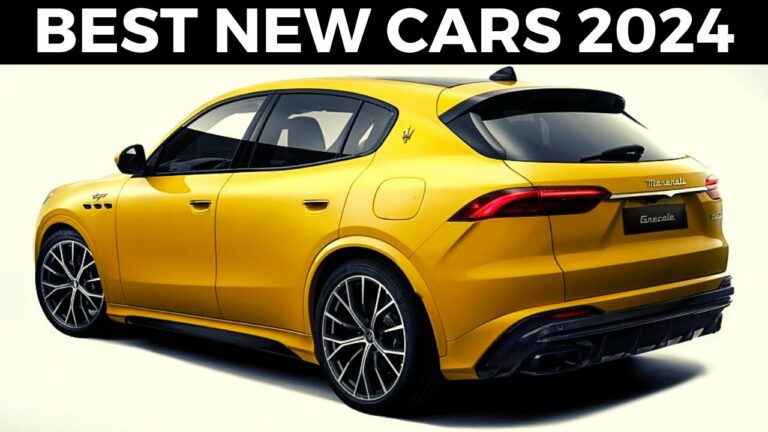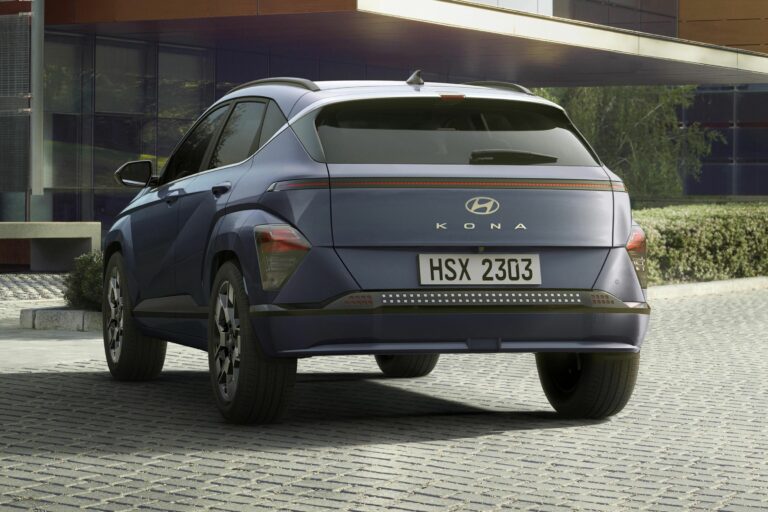Top 10 Car Brands: A Comprehensive Guide to Automotive Excellence
Top 10 Car Brands: A Comprehensive Guide to Automotive Excellence cars.truckstrend.com
The automotive world is a vast and dynamic landscape, filled with a myriad of brands vying for consumer attention. But what truly defines a "top car brand"? It’s more than just sales figures; it encompasses a delicate balance of reliability, innovation, design, performance, safety, and customer satisfaction. Understanding these leading marques is crucial for anyone looking to make an informed decision about their next vehicle, whether they prioritize cutting-edge technology, unparalleled luxury, rock-solid dependability, or exceptional value.
This comprehensive guide delves into the elite tier of the automotive industry, exploring the Top 10 Car Brands that consistently set benchmarks and capture the hearts of drivers worldwide. We’ll uncover what makes each brand stand out, what kind of drivers they appeal to, and offer practical advice to help you navigate your own car-buying journey.
Top 10 Car Brands: A Comprehensive Guide to Automotive Excellence
Understanding What Makes a Top Car Brand
Before we dive into the specific brands, it’s essential to grasp the criteria that elevate a manufacturer to the "top" tier. These are the pillars upon which automotive excellence is built:
- Reliability and Durability: A car’s ability to perform consistently over time with minimal issues is paramount. Brands known for their longevity and low maintenance costs often rank highly.
- Safety: Modern vehicles are expected to offer advanced safety features, both active (preventing accidents) and passive (protecting occupants in a crash). Top brands invest heavily in research and development to enhance vehicle safety.
- Innovation and Technology: From powertrain advancements (EVs, hybrids) to infotainment systems, autonomous driving capabilities, and connectivity features, leading brands are at the forefront of automotive innovation.
- Design and Aesthetics: A car’s visual appeal, interior comfort, and ergonomic design play a significant role in its desirability and perceived quality.
- Performance and Driving Dynamics: Whether it’s raw power, agile handling, or a smooth, comfortable ride, a top brand delivers a driving experience that aligns with its segment.
- Resale Value: The ability of a vehicle to retain its value over time is a strong indicator of brand strength and desirability in the used car market.
- Customer Satisfaction and Service: Excellent customer service, a strong dealership network, and comprehensive warranty programs contribute significantly to a brand’s reputation.
- Environmental Responsibility: With growing global awareness, brands committed to sustainable manufacturing processes and developing eco-friendly vehicles gain significant traction.

These factors collectively contribute to a brand’s prestige, market share, and long-term success, making them a trusted choice for consumers globally.
The Elite List – Top 10 Car Brands Detailed
Here’s our curated list of the Top 10 Car Brands, each excelling in distinct areas and offering unique propositions to a diverse range of buyers:
1. Toyota
- Identity: A global automotive giant synonymous with reliability, fuel efficiency, and practical innovation.
- Key Strengths: Unmatched reputation for dependability, excellent resale value, pioneering hybrid technology, and a wide range of vehicles for every need.
- Popular Models: Camry (mid-size sedan), RAV4 (compact SUV), Prius (hybrid pioneer), Tacoma (mid-size truck), Corolla (compact car).
- Target Audience: Buyers prioritizing long-term reliability, low running costs, practicality, and strong resale value.
- Price Segment: Mainstream.
2. Honda
- Identity: Known for engineering excellence, efficient engines, and a reputation for building fun-to-drive yet practical vehicles.
- Key Strengths: High reliability, strong resale value, efficient and refined powertrains, engaging driving dynamics, and clever interior packaging.
- Popular Models: Civic (compact car), CR-V (compact SUV), Accord (mid-size sedan), Pilot (mid-size SUV).
- Target Audience: Consumers seeking a balance of reliability, fuel efficiency, enjoyable driving, and smart design.
- Price Segment: Mainstream.
3. Ford
- Identity: An American icon with a rich heritage, particularly dominant in the truck and SUV segments, and increasingly focused on innovation.
- Key Strengths: Leadership in pickup trucks (F-Series), a strong lineup of SUVs, performance vehicles (Mustang), and a commitment to electric vehicles.
- Popular Models: F-150 (full-size pickup), Explorer (mid-size SUV), Escape (compact SUV), Mustang (sports car).
- Target Audience: Buyers needing robust work vehicles, spacious family SUVs, or iconic American performance.
- Price Segment: Mainstream to Performance.
4. BMW
- Identity: A German luxury automaker renowned for its "Ultimate Driving Machine" philosophy, blending performance with sophistication.
- Key Strengths: Exceptional driving dynamics, powerful and refined engines, luxurious interiors, advanced technology, and prestigious brand image.
- Popular Models: 3 Series (compact luxury sedan), X5 (mid-size luxury SUV), 5 Series (mid-size luxury sedan), M series (high-performance).
- Target Audience: Enthusiasts who prioritize driving pleasure, luxury, and cutting-edge technology.
- Price Segment: Premium Luxury.
5. Mercedes-Benz
- Identity: The epitome of automotive luxury, comfort, and technological innovation, often seen as a symbol of status and prestige.
- Key Strengths: Unrivaled interior luxury, supreme ride comfort, groundbreaking safety features, sophisticated infotainment systems, and a commanding presence.
- Popular Models: C-Class (compact luxury sedan), E-Class (mid-size luxury sedan), S-Class (full-size luxury sedan), GLC (compact luxury SUV).
- Target Audience: Buyers seeking ultimate comfort, prestige, advanced technology, and a serene driving experience.
- Price Segment: Premium Luxury.
6. Audi
- Identity: A German luxury brand celebrated for its elegant design, advanced technology, and signature Quattro all-wheel-drive system.
- Key Strengths: Sophisticated and minimalist interior design, excellent build quality, strong performance (especially with Quattro), and a focus on digital integration.
- Popular Models: A4 (compact luxury sedan), Q5 (compact luxury SUV), A6 (mid-size luxury sedan), E-Tron (electric SUV).
- Target Audience: Discerning buyers who appreciate understated luxury, advanced technology, and all-weather capability.
- Price Segment: Premium Luxury.
7. Tesla
- Identity: The undisputed leader in electric vehicle innovation, known for its long-range EVs, cutting-edge technology, and minimalist design.
- Key Strengths: Pioneering EV technology, impressive acceleration, extensive Supercharger network, over-the-air software updates, and a unique direct-to-consumer sales model.
- Popular Models: Model 3 (compact executive EV), Model Y (compact SUV EV), Model S (full-size luxury EV), Model X (luxury SUV EV).
- Target Audience: Tech-savvy early adopters, environmentally conscious consumers, and those seeking high performance with zero emissions.
- Price Segment: Luxury EV.
8. Hyundai
- Identity: A South Korean automaker that has rapidly transformed from a value brand to a respected competitor, offering stylish, reliable, and feature-rich vehicles.
- Key Strengths: Excellent value for money, industry-leading warranty, continuously improving design, and strong investment in technology (including EVs and hydrogen).
- Popular Models: Elantra (compact car), Tucson (compact SUV), Santa Fe (mid-size SUV), Kona (subcompact SUV).
- Target Audience: Budget-conscious buyers seeking modern features, stylish design, and a strong warranty.
- Price Segment: Mainstream/Value.
9. Kia
- Identity: Hyundai’s sister company, Kia has also undergone a remarkable transformation, known for its bold design, long warranty, and diverse lineup of vehicles.
- Key Strengths: Striking design language, excellent value, long warranty, impressive safety ratings, and a strong push into electric vehicles.
- Popular Models: Forte (compact car), Sportage (compact SUV), Telluride (mid-size SUV), Sorento (mid-size SUV).
- Target Audience: Consumers looking for stylish, practical, and well-equipped vehicles at competitive prices, backed by a great warranty.
- Price Segment: Mainstream/Value.
10. Lexus
- Identity: Toyota’s luxury division, Lexus combines the legendary reliability of its parent company with refined luxury, quiet interiors, and exceptional customer service.
- Key Strengths: Superb reliability, serene and comfortable ride, plush interiors, excellent build quality, and a focus on customer satisfaction.
- Popular Models: RX (mid-size luxury SUV), ES (mid-size luxury sedan), NX (compact luxury SUV), GX (mid-size luxury SUV).
- Target Audience: Buyers who prioritize smooth luxury, quiet refinement, and unparalleled reliability without the overt sportiness of some German rivals.
- Price Segment: Luxury.
Choosing Your Ideal Ride – Practical Advice
Selecting a car from a top brand is an investment, and a well-informed decision can lead to years of satisfaction. Here’s some practical advice:
-
Assess Your Needs and Lifestyle:
- Budget: Beyond the purchase price, consider insurance, fuel, maintenance, and depreciation (total cost of ownership).
- Purpose: Commuting, family transport, off-roading, performance driving?
- Space: How many passengers? How much cargo space do you need?
- Environment: City driving, long highway trips, rural roads?
- Fuel Type: Gasoline, hybrid, plug-in hybrid, or electric?
-
Research Thoroughly:
- Read reviews from reputable automotive journalists and consumer reports.
- Check reliability ratings (e.g., J.D. Power, Consumer Reports).
- Compare specifications, features, and safety ratings across models.
-
Test Drive, Test Drive, Test Drive:
- Never buy a car without an extended test drive. Pay attention to comfort, visibility, handling, acceleration, braking, and infotainment usability.
- Try to simulate your typical driving conditions.
-
Consider Total Cost of Ownership (TCO):
- Depreciation: How much value will the car lose over time? Top brands often have better resale values.
- Insurance: Get quotes for specific models.
- Maintenance: Research typical service costs and parts availability.
- Fuel/Charging: Factor in energy costs based on efficiency.
-
New vs. Used:
- New: Full warranty, latest features, no prior owner history.
- Used: More affordable, less depreciation hit, certified pre-owned (CPO) options offer peace of mind.
-
Warranty and After-Sales Service:
- Understand the warranty coverage (bumper-to-bumper, powertrain, battery for EVs).
- Evaluate the brand’s reputation for customer service and the quality of their dealership network.
Quick Glance at the Top 10 Brands
| Brand Name | Origin | Key Strengths | Popular Models | Typical Price Segment | Target Audience |
|---|---|---|---|---|---|
| Toyota | Japan | Reliability, Resale Value, Hybrid Tech | Camry, RAV4, Prius | Mainstream | Practical, value-driven, long-term reliability seekers |
| Honda | Japan | Reliability, Efficiency, Engaging Drive | Civic, CR-V, Accord | Mainstream | Balanced buyers seeking efficiency, reliability, and driving enjoyment |
| Ford | USA | Trucks & SUVs, American Heritage, Innovation | F-150, Explorer, Mustang | Mainstream/Performance | Buyers needing utility, family transport, or iconic performance |
| BMW | Germany | Driving Dynamics, Performance, Luxury, Tech | 3 Series, X5, M Models | Premium Luxury | Enthusiasts prioritizing driving pleasure, luxury, and innovation |
| Mercedes-Benz | Germany | Ultimate Luxury, Comfort, Prestige, Safety Tech | C-Class, E-Class, S-Class, GLC | Premium Luxury | Buyers seeking ultimate comfort, prestige, and advanced technology |
| Audi | Germany | Elegant Design, Quattro AWD, Advanced Tech | A4, Q5, E-Tron | Premium Luxury | Discerning buyers appreciating understated luxury and all-weather capability |
| Tesla | USA | EV Innovation, Performance, Tech, Supercharger Network | Model 3, Model Y, Model S/X | Luxury EV | Tech-savvy, environmentally conscious, performance-oriented EV buyers |
| Hyundai | South Korea | Value, Warranty, Rapid Design/Quality Improvement | Elantra, Tucson, Santa Fe | Mainstream/Value | Budget-conscious buyers seeking modern features and strong warranty |
| Kia | South Korea | Bold Design, Value, Long Warranty, Diverse Lineup | Forte, Sportage, Telluride | Mainstream/Value | Consumers looking for stylish, practical, and well-equipped vehicles |
| Lexus | Japan | Luxury, Reliability, Refined Comfort, Service | RX, ES, NX, GX | Luxury | Buyers prioritizing smooth luxury, quiet refinement, and unmatched reliability |
Challenges and Considerations
Even with top brands, challenges can arise. Popular models might have long wait times due to demand or supply chain issues. The rapid evolution of automotive technology, especially in EVs and autonomous driving, means new models can quickly make older ones feel dated. Budget constraints often mean trade-offs between desired features and affordability. Always be prepared to balance brand loyalty with an open mind, as new contenders and evolving market dynamics continually reshape the automotive landscape.
Frequently Asked Questions (FAQ)
Q1: What’s the most reliable car brand?
A1: Toyota and Lexus consistently rank at the top for reliability across various independent studies and consumer reports, often followed closely by Honda.
Q2: Which car brand has the best resale value?
A2: Brands like Toyota, Honda, and Subaru often lead in resale value due to their strong reputation for reliability and durability. Certain luxury brands like Porsche and specific high-demand models from Tesla also hold their value exceptionally well.
Q3: Are luxury cars worth the extra cost?
A3: For many, yes. Luxury cars offer superior materials, advanced technology, higher performance, enhanced comfort, and a more refined driving experience. They often come with better customer service and brand prestige, though they typically incur higher ownership costs (insurance, maintenance, parts).
Q4: Should I buy an electric car from a top brand?
A4: As the automotive industry shifts towards electrification, many top brands (Tesla, Hyundai, Kia, BMW, Mercedes-Benz, Audi, Ford) are investing heavily in EVs. Buying from a reputable brand ensures access to established charging networks (for some), reliable battery technology, and comprehensive service support, making it a safer bet for a newer technology.
Q5: How often do top brands release new models or significant updates?
A5: Most top brands follow a product cycle of 5-7 years for a complete redesign, with mid-cycle refreshes (facelifts, minor tech updates) typically occurring around the 3-4 year mark. However, with rapid technological advancements, especially in EVs, updates can sometimes be more frequent.
Conclusion
The "Top 10 Car Brands" represent the pinnacle of automotive engineering, design, and consumer satisfaction. While each brand has its unique strengths and target audience, they all share a common commitment to quality, innovation, and providing a superior driving experience. Choosing a vehicle from this elite list offers a strong foundation for reliability, performance, and long-term satisfaction.
Ultimately, the "best" car brand is subjective and depends on your individual needs, preferences, and budget. By understanding the core strengths of these leading manufacturers and applying practical advice for your car search, you’ll be well-equipped to make an informed decision that drives your satisfaction for years to come. The journey of finding your ideal ride from a top brand is an exciting one, promising a blend of cutting-edge technology, unparalleled comfort, and the peace of mind that comes with proven excellence.



